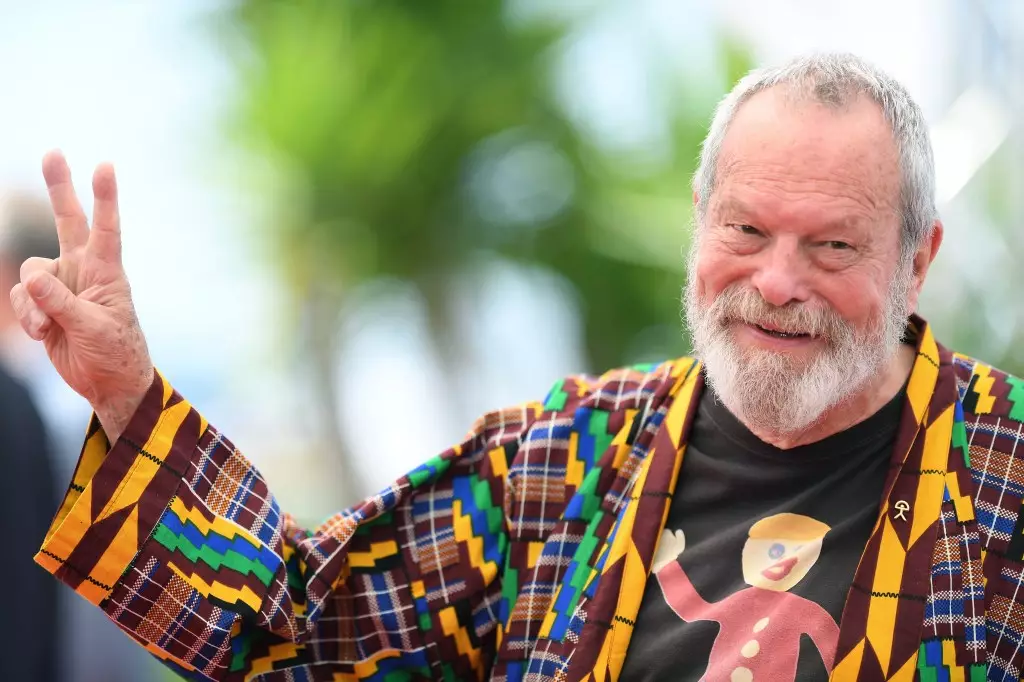Terry Gilliam has long been known for his unique and eccentric storytelling style, often merging profound thematic elements with humor and various visual styles. His latest undertaking, the biblical comedy “Carnival: At The End Of Days,” promises to expand upon these characteristics in spectacular fashion. With the assistance of renowned Italian producer Andrea Iervolino, Gilliam’s ambitious vision is set to find new life, and the anticipation surrounding this project is growing, particularly as it prepares for the European Film Market in Berlin.
The announcement of Iervolino’s involvement in “Carnival” marks a significant moment in the film’s development trajectory. Known for his diverse portfolio—including productions like “Ferrari,” “Maserati: The Brothers,” and “To The Bone”—Iervolino brings both experience and financial backing to the table. As he heads to Berlin to engage with potential buyers and sales agents, it becomes apparent that this collaboration could potentially elevate Gilliam’s project to greater heights.
Iervolino’s vision for “Carnival” is clear: he aims to capture the grandeur and innovative spirit of Gilliam’s work while addressing the challenges posed by its status as an independent film. With unprecedented integration of CGI within a live-action framework, the film aspires to be not just a cinematic experience but a spectacle that challenges the norms of its genre. Iervolino’s assertion that “Carnival” is “one of the most expensive independent projects ever undertaken in cinematic history” speaks volumes about the ambition fueling this endeavor.
At its core, “Carnival: At The End Of Days” is set to grapple with weighty themes, as indicated by Gilliam’s own description of the narrative. The film will revolve around a unique plot: God is poised to wipe out humanity for its transgressions, yet it is Satan who plays the role of the reluctant hero. This engaging premise, where the archetypal antagonist becomes humanity’s only hope, adds a layer of depth and invites audiences to re-evaluate familiar mythologies.
Gilliam’s perspective on the narrative is refreshingly irreverent. Rather than presenting a straightforward apocalyptic tale, he aims to infuse humor into existential musings. Drawing inspiration from his experiences in past films such as “Brazil” and “Fear and Loathing in Las Vegas,” it seems he’s set to deliver a distinctive blend of satire intertwined with philosophical inquiry. Gilliam himself has stated, “This is a simple tale of God wiping out humanity for fucking up his beautiful garden Earth.” This audacious commentary serves as a testament to the film’s tone, which blends comedy with profound social critiques.
In Gilliam’s previous discussions regarding the film, he mentioned notable actors like Johnny Depp, Jeff Bridges, Adam Driver, and Jason Momoa as potential cast members. While no official signing announcements have been made, the prospect of Depp portraying a sympathetic Satan confronting God—likely represented by Bridges—hints at a complex interplay of character dynamics. This enigmatic relationship between the divine and the demonic, coupled with a multi-layered cast, could provide an electrifying experience, provided the creative execution is on par with the high expectations.
Considering Gilliam’s storied history in the film industry, particularly his struggles with past projects—most notably “The Man Who Killed Don Quixote”—the unfolding of “Carnival” has garnered heightened curiosity. With the foundations laid and significant talent already surfacing within the project, the hope is that Gilliam’s magnum opus can avoid the prolonged delays of his earlier ventures and come together swiftly.
The film industry is often a landscape fraught with uncertainty, but with the strong duo of Gilliam and Iervolino at the helm, there is a palpable excitement for “Carnival: At The End Of Days.” As audiences brace for its anticipated production start in Italy, the film stands to forge its own identity while simultaneously honoring the idiosyncrasies that have defined Gilliam’s illustrious career. With an infusion of new technology and classic storytelling, “Carnival” is positioned to resonate on multiple levels. Whether it succeeds in its ambitious aims remains to be seen, but its creative premise ensures that it will attract attention and debate, both in the industry and among film enthusiasts.


Leave a Reply